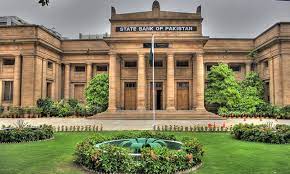Mohsin Siddiqui (Chief Reporter)
Pakistan’s economic challenges, including higher budget and current account deficits, have been successfully managed, according to the Finance Ministry’s Economic Advisor wing. In its monthly economic outlook report, the ministry highlighted a shift to a manageable level, paving the way for increased economic growth. The report acknowledged that inflation is expected to settle at a “moderate level,” albeit still in higher double digits.
The Finance Ministry emphasized the downward trajectory of the twin deficits, indicating improved economic management and reduced macroeconomic imbalances. This sets the stage for progressing towards higher and sustainable economic growth. The report notes that the budget and current account deficits, often considered the ills of Pakistan’s economy, have hindered growth and are symptoms of irresponsible fiscal operations.
Despite the positive outlook presented in the December report, questions linger about the sustainability of these indicators. Inflation, although anticipated to remain around 27.5% to 28.5% in the current month, is expected to ease to 25% in January. The Finance Ministry attributes this slowdown to factors such as a stable exchange rate, controlled aggregate demand, improved supply conditions, moderation in international commodity prices, and a favorable base effect.
The report acknowledges the impact of declining petrol and diesel prices in offsetting inflationary pressures from higher gas prices, providing relief to the common man. Cautious expenditure management has played a key role in controlling non-essential spending, although challenges persist in managing higher mark-up payments.
The government’s development spending has been limited, and sources reveal a bullet payment of Rs970 billion from the central bank to demonstrate lower deficits. The Finance Ministry highlights the successful implementation of consolidation measures on the fiscal side, leading to a significant rise in total revenue receipts, a curtailed fiscal deficit, and an improved primary surplus.
While the government faced higher interest payments, a favorable trade balance reduced the current account deficit to $1.1 billion in the first five months. The outlook suggests expectations of stable exports and increasing imports in the coming months.
Despite mixed economic growth performance, the Finance Ministry remains optimistic, addressing challenges in sectors like Large Scale Manufacturing (LSM) and the auto industry. The report underscores the government’s commitment to fiscal strategies aimed at achieving set targets, emphasizing revenue enhancement and prudent expenditure control.




